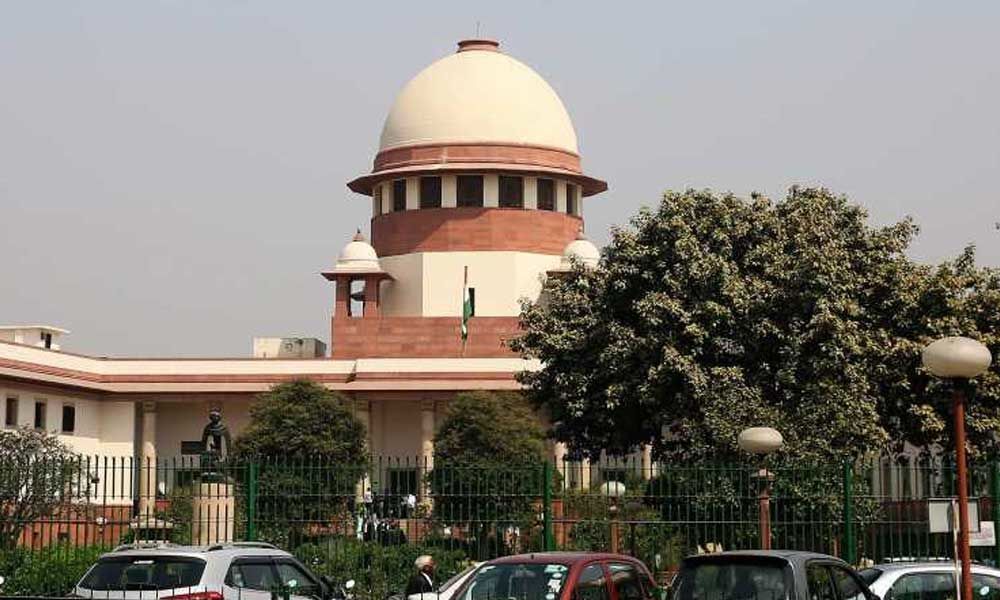Live
- ‘We can’t take things for granted’: Jayasuriya on balancing formats and Sri Lanka’s path to WTC final
- Prakash Ambedkar ready to 'power' the winner in Maha polls - Mahayuti or MVA
- BJP plans campaign against Cong govt
- Be lifelines to public & render best, cops told
- Siri 2.0: Apple's Advanced AI Assistant to Be Released in 2026
- Senegal ruling party wins parliamentary majority: Provisional results
- BJP flags plight of primary school
- Sensex surges 855 pts despite geo-political tensions, PSU bank stocks shine
- ED likely to question some Dubai-based Indians in Bengal ration scam case
- Minor quake hits Manipur's Bishnupur district
Just In
Petitioners seek early hearing in Supreme Court on Article 35A


A Presidential order was issued under Article 370, which recognises the special status of J&K after it acceded to India, to bring Article 35A into force.
New Delhi: Six separate petitions challenging the constitutional validity of Article 35A of the Constitution is pending in the Supreme Court. The matter gains significance as the the Centre has decided to deploy additional forces in Jammu and Kashmir.
These petitions seek an affirmative answer from the top court on the contentious issue -- should the Article 35A, which confers special rights to the permanent residents of Jammu and Kashmir, be finally phased out.
Since 2014, the case has come up for hearing several times but it is yet to be heard in detail on merits, by a designated bench in the apex court.
The article allocates Indian citizenship to the permanent citizens of the state and further allows them special privileges, which have been challenged through petitions in the apex court.
We the Citizen, an NGO, in 2014 challenged this article by filing a petition in the apex court.
The NGO argued that this article was a temporary measure and there were many flaws in the article. For example, it was discriminatory to Kashmiris if they married outside the state and citizens from other parts of the country cannot permanently settle in the state.
Another plea by West Pakistan Refugees claim that there were 3 lakh refugees from the West Pakistan and those who have chosen to be settled in Jammu and Kashmir have been denied the rights gauranteed under Article 35A, which is only meant for original residents of the state.
The arguments in these petitions converge at a main point that the amendment of the Constitution is possible through Parliament and it also has the authority to debate on the merits of Article 35A.
A Presidential order was issued under Article 370, which recognises the special status of Jammu and Kashmir after it acceded to India, to bring Article 35A into force.
Article 370 gives autonomy to the state except in three areas -- defence, communication and external affairs.
Article 370 and Article 35A have acquired political overtones since their inception and leaders from the Kashmir Valley have indicated that abolishing these special provisions will plunge the state into chaos.
The top court has deferred hearing on the matter at least seven times since December 2018, said BJP's Ashwini Upadhyaya who is also a petitioner challenging the constitutional validity of Article 35A.
Charu Wali Khanna, who had moved a petition against the article citing gender discrimination, expressed her discontent as the case had not come up for a detailed hearing this year.
"The top court should conduct a hearing on the matter as soon as possible. It is already been delayed for a long time," said Khanna.
The case is yet to be heard by Chief Justice Ranjan Gogoi after assuming office in October 2018.

© 2024 Hyderabad Media House Limited/The Hans India. All rights reserved. Powered by hocalwire.com






